During the discussion session on the draft Law on Personal Income Tax and the draft Law on Tax Administration (amended) on the afternoon of November 19, the regulation of 200 million VND in annual revenue as the tax threshold for business households was one of the issues that caused much debate in the National Assembly .
Many delegates said that this level does not ensure fairness, and even creates more burden for disadvantaged groups. Meanwhile, the drafting agency and the Ministry of Finance affirmed that this is a necessary step to collect the right amount of tax, and at the same time, they are ready to study and adjust to ensure the correlation with wage earners.
Businesses are suffering "double losses"
Delegate Nguyen Van Chi ( Nghe An ) said that the shift from lump-sum tax to calculating tax based on actual revenue via electronic invoices will make the recorded revenue much higher than the previous lump-sum level. Although the tax rate remains unchanged, the actual tax amount paid will certainly increase significantly.

Delegate Nguyen Van Chi (Nghe An) (Photo: Media QH).
The biggest problem, according to her, lies in the revenue threshold of 200 million VND/year - equivalent to actual income of only about 1.6 million VND/month if assuming a profit margin of 10%.
"It is very inappropriate to have to pay taxes on this income level," she said. While salaried employees are expected to receive a family deduction of 15.5 million VND/month for themselves and more than 6 million VND for each dependent, business households are not entitled to any deductions.
Sharing the same view, delegate Tran Van Lam (Bac Ninh) analyzed that if calculated according to the average added value of the economy (about 8%), then 200 million VND in revenue/year is only equivalent to about 16 million/year, or about 1.33 million VND/month in income.
"The starting tax level for business households is only 1.33 million/month, while that of salaried employees is 11 million/month according to current regulations. This is a huge inequality that small business households have to bear.
For small businesses, all business profits are income used to cover living expenses. That income is determined as personal income for tax purposes. But currently, they have to pay personal income tax from the first revenue from the starting level, every revenue generated regardless of whether the business is profitable or not, and are not entitled to family deductions like other subjects," he said.

Delegate Tran Van Lam (Bac Ninh) (Photo: Media QH).
Mr. Lam said that if we look at the total revenue of the entire economy, the two largest taxes currently, personal income tax and corporate income tax, actually only account for 0.37% of revenue (of which personal income tax accounts for 0.13% and corporate income tax accounts for 0.24%).
However, for business households, the lowest tax rate is 0.5% of revenue, which is higher than the average rate that the entire economy is paying. For industries with tax rates of 1-5%, the amount of tax they have to pay is many times higher.
In other words, even though they are the smallest and most vulnerable group, business households are being taxed based on their turnover more heavily than the general tax rate that the economy is currently paying. This explains why they are worried about the transition from lump-sum tax to actual revenue declaration.
Both delegates emphasized that household businesses are a force that creates jobs, a vulnerable sector and an important pillar of the private economy. Therefore, it is necessary to have appropriate tax policies that ensure fairness and create conditions for this group to confidently transform.
"Will adjust to be fairer"
Speaking after receiving the explanation, Minister of Finance Nguyen Van Thang said that the transition from lump-sum tax method to electronic invoice declaration, along with the application of information technology, has helped to accurately reflect the actual revenue of business households. Thanks to that, the budget revenue from this area increased by 64%.
According to him, when applying lump-sum tax, the situation of large revenue losses existed for many years, while electronic invoices help to reflect the actual revenue generated. In particular, the Minister emphasized that raising the threshold from 100 to 200 million VND in revenue is a step forward that is beneficial for business households compared to before.

Minister Nguyen Van Thang receives explanations at the National Assembly (Photo: Media QH).
However, he also acknowledged that the issue raised by many delegates is that relative fairness between salaried workers and business households must be carefully considered.
The Minister said that the Ministry of Finance has studied the option of starting to calculate tax from 201 million VND and above, and after receiving more opinions, the Ministry will recalculate everything to ensure that business households are not disadvantaged.
He also emphasized that the application of technology and electronic invoices is an inevitable trend, but must be accompanied by reasonable tax rates, "both encouraging household economy and ensuring fairness".
Source: https://dantri.com.vn/thoi-su/doanh-thu-200-trieunam-se-phai-nop-thue-ho-kinh-doanh-co-dang-bi-thiet-20251119181510095.htm



![[Photo] President Luong Cuong receives President of the Senate of the Czech Republic Milos Vystrcil](/_next/image?url=https%3A%2F%2Fvphoto.vietnam.vn%2Fthumb%2F1200x675%2Fvietnam%2Fresource%2FIMAGE%2F2025%2F11%2F20%2F1763629737266_ndo_br_1-jpg.webp&w=3840&q=75)
![[Photo] Lam Dong: Panoramic view of Lien Khuong waterfall rolling like never before](/_next/image?url=https%3A%2F%2Fvphoto.vietnam.vn%2Fthumb%2F1200x675%2Fvietnam%2Fresource%2FIMAGE%2F2025%2F11%2F20%2F1763633331783_lk7-jpg.webp&w=3840&q=75)

![[Photo] National Assembly Chairman Tran Thanh Man holds talks with South Korean National Assembly Chairman Woo Won Shik](/_next/image?url=https%3A%2F%2Fvphoto.vietnam.vn%2Fthumb%2F1200x675%2Fvietnam%2Fresource%2FIMAGE%2F2025%2F11%2F20%2F1763629724919_hq-5175-jpg.webp&w=3840&q=75)

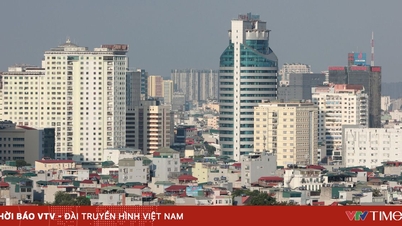

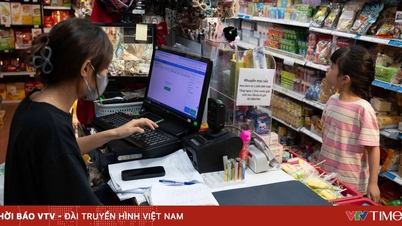


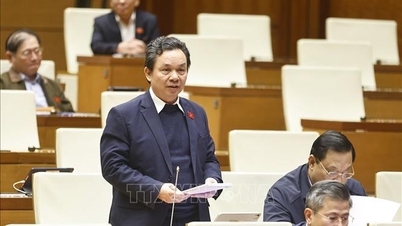








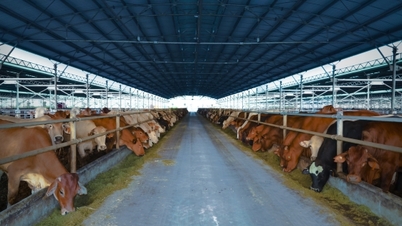

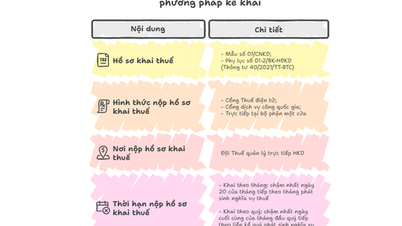



















































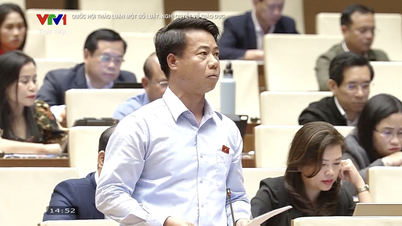



































Comment (0)